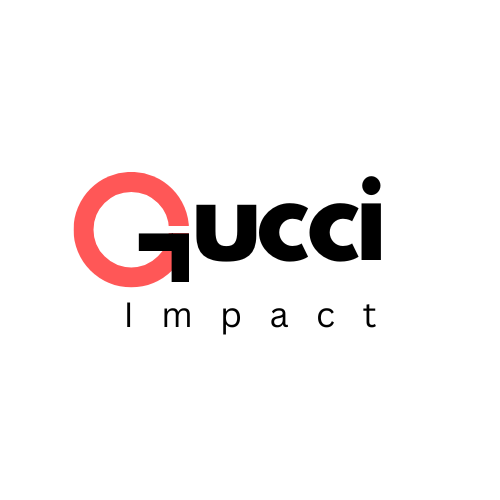The Transformative Power of Blockchain Technology: Beyond Cryptocurrencies

Blockchain technology, often associated with cryptocurrencies like Bitcoin and Ethereum, is much more than just the backbone of digital currencies. It is a revolutionary technology with the potential to disrupt a wide range of industries by enhancing transparency, security, and efficiency. This article explores the fundamentals of blockchain technology, its applications beyond cryptocurrencies, and the potential benefits and challenges it presents.
Understanding Blockchain Technology
At its core, a blockchain is a decentralized ledger that records transactions across multiple computers in a way that ensures the security and integrity of the data. Unlike traditional ledgers that are managed by a central authority, a blockchain is distributed across a network of nodes (computers), where each node maintains a copy of the entire ledger.
Each block in a blockchain contains a list of transactions. Once a block is completed, it is added to the chain in a linear, chronological order. The integrity of the blockchain is maintained through cryptographic hashing, where each block contains a hash of the previous block. This creates a chain of blocks that is secure and tamper-proof. Because of its decentralized nature, altering any information on the blockchain would require altering all subsequent blocks, which is computationally infeasible.
Applications Beyond Cryptocurrencies

While blockchain technology first gained attention through cryptocurrencies, its potential extends far beyond digital currencies. Here are several key areas where blockchain is making a significant impact:
1. Supply Chain Management:
Blockchain technology can enhance transparency and traceability in supply chains. By recording every step of the supply chain on a blockchain, companies can track the origin and journey of products, ensuring authenticity and reducing fraud. For example, in the food industry, blockchain can track the provenance of products from farm to table, improving food safety and quality.
2. Smart Contracts:
Smart contracts are self-executing contracts with the terms of the agreement directly written into code. They automatically enforce and execute contract terms when predefined conditions are met. This technology reduces the need for intermediaries and minimizes the risk of disputes. In real estate, smart contracts can streamline property transactions by automating the transfer of ownership and funds.
3. Healthcare:
Blockchain has the potential to transform healthcare by improving data management and patient privacy. Securely storing patient records on a blockchain can enhance data interoperability between healthcare providers while ensuring that sensitive information remains protected. Additionally, blockchain can be used for tracking pharmaceuticals through the supply chain, reducing the risk of counterfeit drugs.
4. Voting Systems:
Blockchain technology offers a promising solution for secure and transparent voting systems. By using blockchain to record votes, the voting process can be made more transparent and resistant to tampering. This could lead to more trustworthy elections and increased voter participation, as individuals could vote securely from their devices.
5. Intellectual Property:
Blockchain can help protect intellectual property (IP) rights by providing a decentralized and immutable record of ownership. Artists, musicians, and creators can use blockchain to register their work and prove ownership, reducing the risk of IP theft and enabling better management of royalties and licensing.
Benefits of Blockchain Technology

1. Enhanced Security:
Blockchain’s decentralized and cryptographic nature makes it highly secure against hacking and fraud. Each transaction is verified by multiple nodes before being added to the blockchain, reducing the risk of malicious activity and data breaches.
2. Increased Transparency:
The transparency of blockchain allows all participants in the network to view the entire ledger, promoting trust and accountability. This transparency is particularly valuable in industries where verification and auditing are crucial.
3. Reduced Costs:
By eliminating the need for intermediaries and automating processes through smart contracts, blockchain technology can reduce operational costs. For example, cross-border transactions can be completed more efficiently and with lower fees compared to traditional banking systems.
4. Improved Efficiency:
Blockchain can streamline various processes by providing a single, shared version of truth that all participants can access. This reduces the time and effort required for reconciliation and verification, leading to faster and more efficient transactions.
Challenges and Considerations
1. Scalability:
One of the major challenges facing blockchain technology is scalability. As the number of transactions and participants grows, the blockchain can become slower and more cumbersome. Solutions such as sharding and layer-2 protocols are being developed to address these issues, but scalability remains a work in progress.
2. Regulatory Concerns:
The decentralized nature of blockchain presents challenges for regulatory oversight. Governments and regulatory bodies are still exploring how to address legal and compliance issues related to blockchain technology. Establishing clear regulations is crucial for fostering innovation while ensuring security and consumer protection.
3. Energy Consumption:
Blockchain networks, particularly those using proof-of-work consensus mechanisms, can consume significant amounts of energy. This has raised concerns about the environmental impact of blockchain technology. Efforts are underway to develop more energy-efficient consensus mechanisms, such as proof-of-stake.
4. Integration with Existing Systems:
Integrating blockchain technology with existing systems and infrastructure can be complex. Organizations need to consider how blockchain will fit into their current processes and ensure interoperability with other technologies and platforms.
The Future of Blockchain Technology

Blockchain technology is still in its early stages, and its full potential is yet to be realized. As the technology matures, we can expect to see more widespread adoption and innovative applications across various industries. The development of more scalable and energy-efficient solutions, along with clear regulatory frameworks, will be key to unlocking blockchain’s potential.
In conclusion, blockchain technology offers transformative possibilities beyond cryptocurrencies. Its applications in supply chain management, smart contracts, healthcare, voting systems, and intellectual property highlight its potential to enhance transparency, security, and efficiency. While challenges remain, ongoing advancements and increasing adoption are paving the way for a future where blockchain technology plays a central role in reshaping industries and driving innovation.




